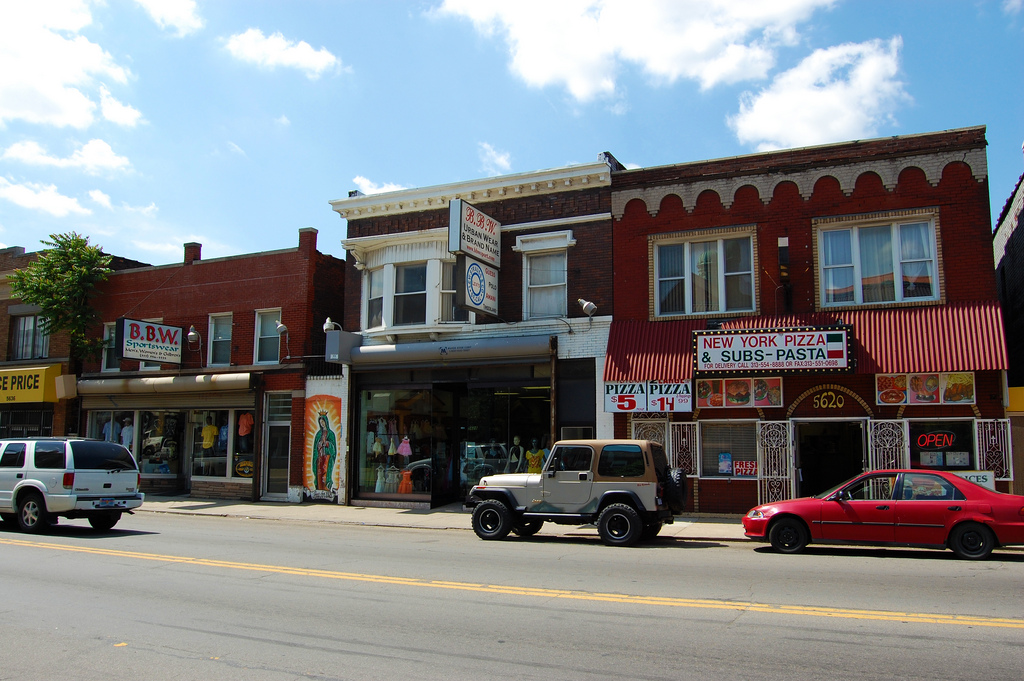Zoning In On Rezoning Efforts in 48216 and 48209 SW Detroit Neighborhoods
Detroit City Council Member Raquel Castañeda-López explains the history of industrial zoning in two Detroit neighborhoods and why she believes it’s time to make a change for residents living in these communities.

Detroit City Council members are considering a proposal to rezone two neighborhoods of Southwest Detroit. The change would affect the 48216 and 48209 zip codes. Both zip codes are currently classified for heavy industrial zoning.
City Council Member Raquel Castañeda-López represents District 6, which includes both of the zip codes up for potential rezoning. She says the goal move is to protect the residents of those communities now and in the future.
“People used to live by factories and walk to work… a lot of the zoning issues we are trying to fix are reflective of those dynamics from back in the day.” –Detroit City Councilwoman Raquel Castañeda-López, District 6
Lopez says that this is a proposed rezoning to clean up some of the zoning errors that exist. “A lot of this area is zoned heavy industrial, known as M4, and the goal of this rezoning is to bring into alignment (the zoning) with the fabric of the community and into alignment with the master plan based on community requests, recommendations based on… the City Planning Commission staff and based on the 2018 West Vernor Corridor Study” says Lopez.
“People used to live by factories and walk to work… a lot of the zoning issues we are trying to fix are reflective of those dynamics from back in the day,” explains Lopez. She says that as of right now, entire blocks of residents in these areas are living in areas designated M4.
The first piece of this effort, Lopez says, is about changing the zoning to more residential, “which is what vast majority of what this area is.” The second piece is that in doing this rezoning, members of the community will be better protected from the types of uses that could potentially come into their neighborhoods through M4 zoning, she explains.
City Zoning 101
M4 INTENSIVE INDUSTRIAL DISTRICT: Lopez says that, simply put, this is the highest level of industrial use for an area in the City of Detroit, and it’s how 48216 and 48209 are currently zoned. It’s important to note that these are zip codes with dense blocks of single-family homes.
According to the City of Detroit’s website: This district will permit uses which are usually objectionable and, therefore, the district is rarely, if ever, located adjacent to residential districts. A broad range of uses is permitted in this district. New residences are prohibited with the exception of loft conversions of existing buildings and of residential uses combined in structures with permitted commercial uses. These requirements are to protect residences from an undesirable environment and to ensure reservation of adequate areas for industrial development.
M1 LIMITED INDUSTRIAL DISTRICT: This is the zoning classification that Lopez, the City Planning Commission and many community members of Southwest Detroit are in favor of. Lopez describes this category as the lightest level of zoning classification for industry.
Here’s the definition from the City of Detroit’s zoning page: This district is used primarily along major and secondary thoroughfares in blocks which contain older, vacant structures, mixed land uses, or other deficiencies, and where the Master Plan indicates industrial development to be the desirable ultimate use. The purpose of the district is to permit these vacant structures to be used for necessary economic activities, and to encourage the transition of the area to warehousing, wholesaling, and light industrial uses.
M2 RESTRICTED INDUSTRIAL DISTRICT: Lopez says that this zoning category allows from some additional industrial uses that are not permitted within an M1 zone. Another member of City Council, Scott Benson, has proposed this alternative.
The City of Detroit describes it as: This district is designed for a wide range of industrial and related uses which can function with a minimum of undesirable effects. Industrial establishments of this type provide a buffer between residential districts and intensive industrial districts. New residential construction is excluded from this district with the exception of loft conversions of existing buildings and of residential uses combined in structures with permitted commercial uses. These requirements are both to protect residences from an undesirable environment and to ensure reservation of adequate areas for industrial development.
How This Could Change Existing Trucking and Industry in SW Detroit
Lopez says that “currently, residential communities are plagued by trucking,” and she adds that from the community’s perspective, there are “a lot of issues with trucks overall.” However, this rezoning is more about protecting and preventing future industry from coming in and expanding in the areas. She notes that a couple of commercial industrial landowners in the area are critical of the rezoning, citing that property values could decrease for them and prevent them from developing future industrial projects on the land they own. Those concerns, which come from the Ambassador Bridge Company and Boulevard Trumbull Towing, would only impact the businesses in the sense that they would have to adjust future projects to be M1 compliant within 48216 and 48209.
The change to M1 zoning would be beneficial to the air quality, sound pollution and overall health implications of residents in these two Southwest Detroit neighborhoods, says Lopez.
The Detroit City Council is holding public comment Thursday, February 11 at 11:20 a.m.
Trusted, accurate, up-to-date
WDET is here to keep you informed on essential information, news and resources related to COVID-19.
This is a stressful, insecure time for many. So it’s more important than ever for you, our listeners and readers, who are able to donate to keep supporting WDET’s mission. Please make a gift today.
